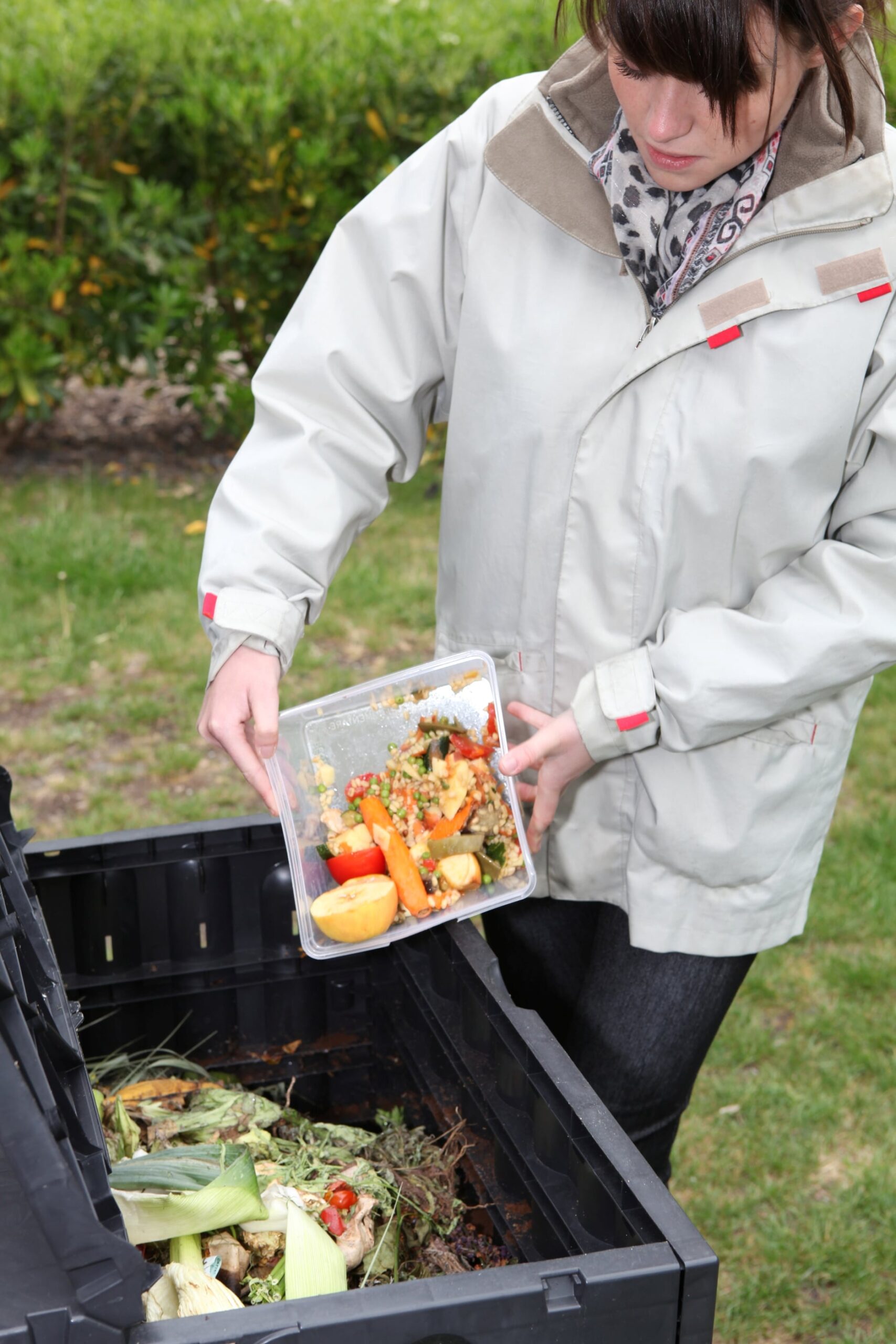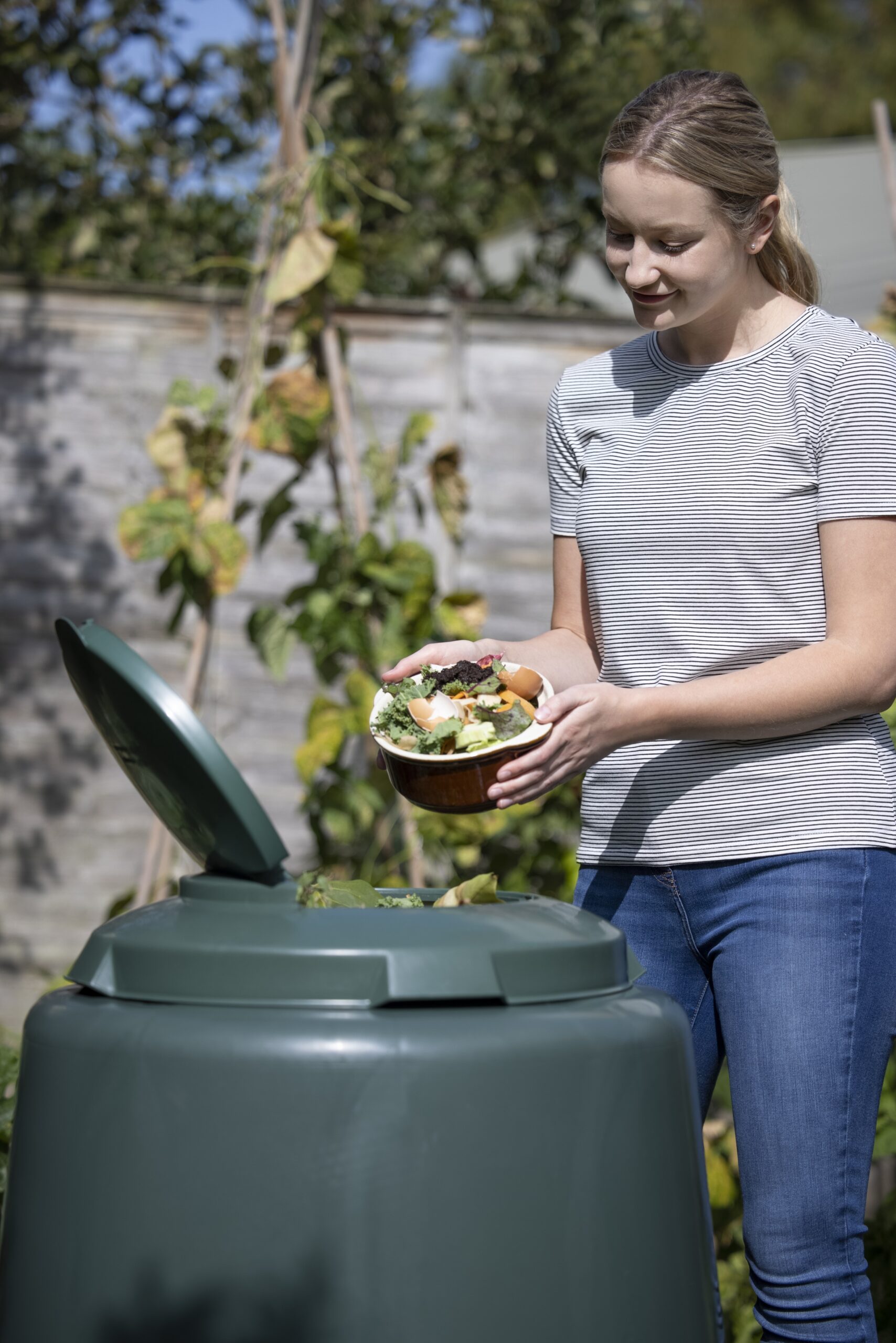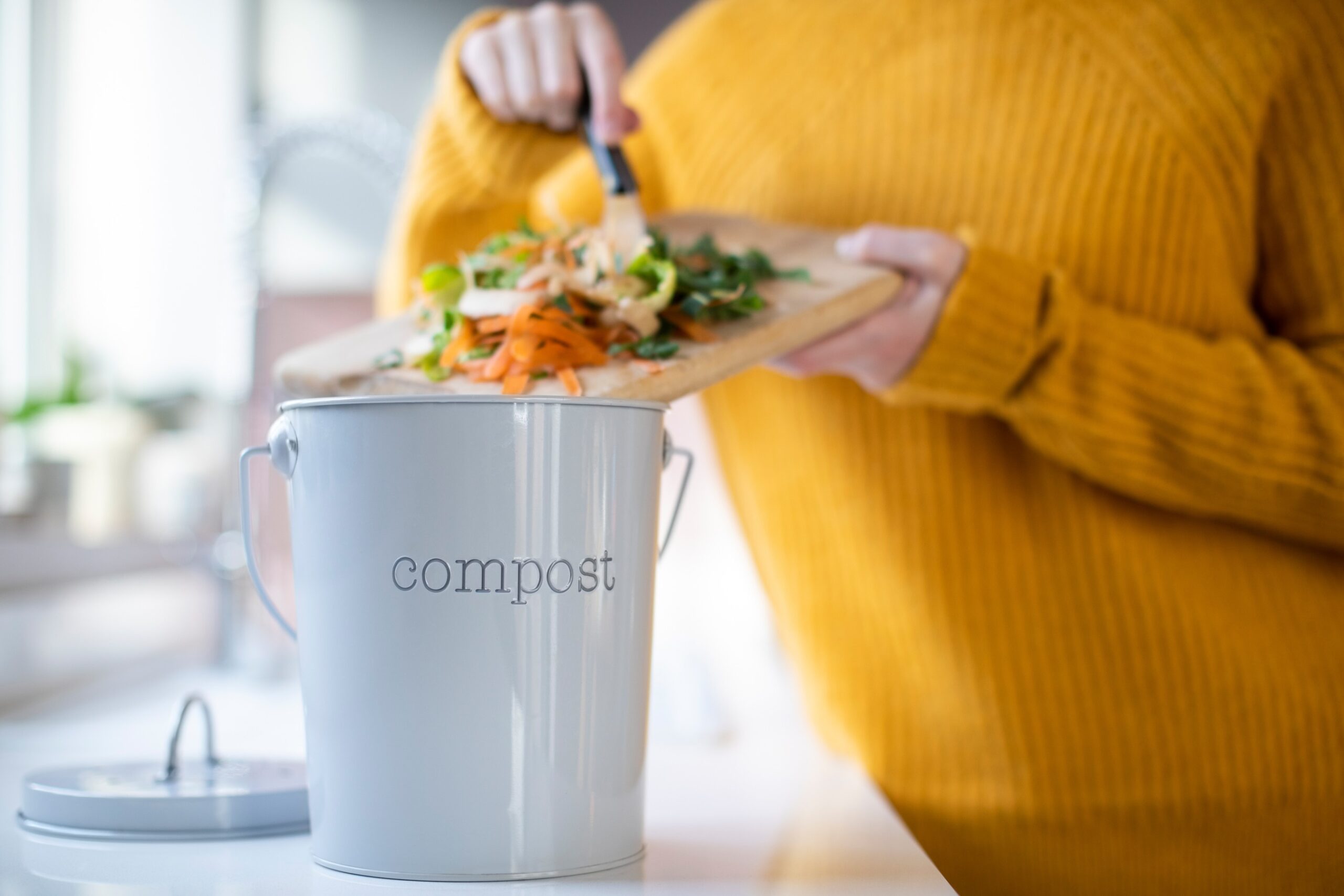Composting is the natural process of converting organic materials like leaves and food scraps into a valuable fertilizer that may improve soil and plants. Composting merely accelerates the decomposition process by creating a perfect habitat for bacteria, fungus, and other decomposing organisms like worms to perform their work. Compost is the decomposed material that results from the above process, and it typically looks like fertile garden soil. You may ask yourself whether composting is right for you, and if so, what can you compost? This article will go over what composting is, the advantages, and what you should and should not compost.
The Advantages of Composting
There are many wonderful environmental benefits of composting. Read on to find out more.
Lowers the Waste Stream
Composting is an excellent technique to recycle organic waste generated at home. Food leftovers and garden trash account for more than a quarter of what we throw away. Food waste is expensive to handle and bad for the environment. The average cost of landfilling municipal solid waste in the United States is almost $54 per ton. With the United States producing, on average, 268 million tons of waste each year. Sadly, two-thirds of this waste goes into landfills and incinerators. Composting at home can help divert waste away from landfills and convert it into beneficial fertilizer for your garden.
Reduces Landfill Methane Emissions
When organic matter decomposes, it is broken down by microbes that require oxygen. When we dispose of biodegradable garbage in a landfill, it is buried beneath vast volumes of other rubbish, cutting off a steady supply of oxygen for decomposers.
The trash subsequently breaks down by organisms that can exist without free-flowing oxygen during anaerobic decomposition.
As a result, biogas is produced as a byproduct of anaerobic digestion. This biogas is about half methane and half carbon dioxide. Both are potent greenhouse gases, with methane being 28 to 36 times more efficient than CO2 at trapping heat in the atmosphere. Even though most contemporary landfills have methane capture systems, they do not catch all of the gas; landfills remain the third-largest source of human-generated methane emissions in the United States.

Enhances Soil Health and Reduces Erosion
Compost is a critical tool for enhancing large-scale agricultural systems. Composting provides essential elements that vegetable gardens require: nitrogen, phosphorus, and potassium. It also contains trace amounts of other things like calcium, magnesium, iron, and zinc. Composting provides an organic alternative to synthetic fertilizers that contain hazardous chemicals and improves soil water retention capacity, productivity, and resilience.
Composting Saves Water
Agriculture consumes a significant amount of water in the United States, accounting for around 80% of total water use. According to research, the addition of organic matter increases the water-retaining capacity of the soil. Every 1% increase in soil organic matter allows the earth to store 20,000 gallons more water per acre. Farmers who utilize compost to promote healthy soil use less water while still producing greater yields than farmers who do not use compost.
Reduction of Personal Food Waste
The average American household of four wastes roughly $150 in food each month, a 50 percent increase since the 1970s. And, according to a study by the NRDC, fruits, and vegetables are high on the list of waste. The best approach to decrease the effects of food waste is to prevent it from happening in the first place. By planning your food storage and meals, it is possible to minimize waste. Of course, there will always be food waste, for example, banana peels and apple cores, but you can recycle your waste and turn it into a valuable resource for your garden through composting.
Types of Home Composting
When asking what can you compost, first you must know about the different types of home composting. There are two primary types of home composting, cold and hot. Your composting process can be as sophisticated or as simple as you like. Composting for beginners can sound intimidating and overwhelming. However, KC Dumpster is here to help. Numerous factors determine the ideal technique for you to compost at home.
- The amount of appropriate space you have available and where you live.
- How much organic garbage you generate.
- The type of organic waste you generate, including kitchen and yard waste.
- The amount of time you have to devote to your composting process.

Cold Composting
Cold composting will degrade organic waste slowly, yet it requires the least amount of labor and upkeep. Anything organic ultimately decomposes; cold composting simply allows Mother Nature to do her job with minimum interference on your side. You don’t have to bother about the ratio of compost materials, aerating it regularly, or monitoring moisture levels. If you have little organic waste to compost, don’t have much time to tend to the process, and aren’t in a rush for completed compost, cold composting is the ideal option.
However, depending on the cold compost technique used, it might take one to two years to produce usable compost. In addition, cold composting is mainly anaerobic, which means that microorganisms that thrive in an oxygen-depleted environment break down the waste. As a result, cold compost heaps may be smellier or wetter than hot piles, in addition to being slower to decompose.
Hot Composting
Hot composting is a quicker, more controlled method of composting. This technique necessitates close attention to maintain the optimal carbon-nitrogen ratio for decomposing organic waste. It also needs the proper balance of air and water to attract species that thrive in an oxygen-rich environment. Under ideal conditions, the finished compost product may be ready in four weeks to a year. The high temperature of the pile, if handled properly, will eliminate most weeds, plant diseases, insecticides, and herbicides, as well as any bug larvae or eggs.
How to Compost
Growing organisms that break down organic waste requires four essential elements: nitrogen, carbon, air, and water. Because all biodegradable materials include carbon and different nitrogen levels, proper composting is simply a matter of utilizing the correct combination of materials to create the best carbon-to-nitrogen ratio and keeping the proper amounts of air and water. A compost pile’s optimum carbon-to-nitrogen ratio is 25 to 30 parts carbon to 1 part nitrogen. If your compost pile contains an excessive amount of carbon-rich material, it will be drier and take longer to decompose. Excess nitrogen-rich material might result in a slimy, moist, and stinky compost pile. These issues, though, are easily rectified by introducing carbon-rich or nitrogen-rich material as needed.
Begin by alternating thin layers of greens and browns, finishing with a layer of browns. (You can continue to add materials until you reach the ideal height of 3 feet.) As you layer, wet the compost pile if necessary. Then, after four days, leave the compost pile alone to enable early decomposition to commence, after which you may aerate your pile or bin by stirring it with a pitchfork or garden fork and constantly monitor the moisture level.
Compost Bin Size
A compost container or pile should be no larger than a 3-foot cube. A considerable volume of waste is required to generate a high enough temperature for organisms to flourish. Larger heaps, however, are unlikely to enable adequate air to reach the decomposers in the core and may be more challenging to turn.

Before putting more significant bits of food or yard waste into your bin or pile, chop them up. The faster the breakdown occurs, the smaller the fragments. A rule of thumb in composting is to avoid including anything thicker than a finger.
Location of Your Compost Bin
A dry and shaded site is suitable for composting. If you live in a rainy environment, avoid storing your compost pile or bin beneath eaves or in areas with poor drainage since this may cause the compost to get excessively wet. On the other hand, if you live in a sunny location, choose a shady area so it doesn’t dry out, and you don’t have to constantly add water.
What Can You Compost?
There are many things you can compost. See below for a list of the most common things to compost.
Composting Outdoor Waste
Grass clippings are an excellent source for composting. However, they should be combined with other items, or you may end up with a slimy, smelly mess. To avoid this, combine clippings with dirt or sawdust before being added to the pile. Then, spread the grass out over the top of the mound at the very least.
Sawdust, wood chips, sticks and twigs (preferably shredded or chopped), and pine needles can all be put to compost, but keep in mind that their carbon content is relatively high. They will take a long time and/or a lot of nitrogen to decompose. Use them sparingly, in thin layers, or mixed with other substances to ensure you are exposing the most significant surface area to air and microorganisms. Sawdust, like grass clippings, forms thick, anaerobic clumps that resist decomposition; therefore, it should be thrown onto a compost heap in thin layers only.
Composting Kitchen Waste
Most food waste can be put in your compost pile.
- You can compost fruit and vegetable trimmings.
- Bread, cereals, hamburger buns, and all sorts of grains are great for composting.
- You can compost coffee and tea grinds.
- Ketchup, relish, soy sauce, and other condiments in moderation due to acidity, which can upset the pH balance of your compost pile.
- You can also compost things like nutshells, eggshells, and corn cobs.

What can’t you compost?
Below are some of the items that you should never compost.
Coal Ash
While most ashes are okay to add to your compost pile, coal ash is not. They have significant levels of sulfur and iron, which can harm plants.
Colored Paper
Some colored ink paper, such as newspapers, contains heavy metals or other hazardous elements and should not be composted.
Suspect Plant Materials
To eradicate many plant diseases, an effective composting system and optimum circumstances (high heat) are required. If the disease organisms are not killed, they might spread when the compost is applied later. Avoid using suspect plant materials or plants that might carry disease.
Inorganic Material to Avoid
Aluminum foil, glass, plastics, and metals are examples of inorganic materials that will not degrade. In addition, pressure-treated timber should be avoided since it has been treated with chemicals that may be harmful in compost.
Food to Not Compost
Meat, bones, fish, fats, and dairy products should not be put in your compost bin. These items might “overheat” your compost pile and may attract pests. Instead, they are better left to large-scale anaerobic digesters and avoided at home.
Pet droppings
Never compost dog or cat droppings as it can make compost hazardous to handle.
Synthetic Chemicals
Some lawn and garden chemicals can resist the composting process and stay in the finished compost. Do not compost anything that has recently been treated with herbicides or pesticides.
Accelerating the Composting Process
Composting decomposes fastest between 120 and 160 degrees Fahrenheit; thus, anything that raises the temperature will “cook” your compost quicker. Here are four quick composting tips to leave you with:
- Chop or shred large pieces of waste to make it simpler for bacteria to break them down. Running your lawn mower over leaves and other garden trash, for example, is a simple method to slice and dice garden waste. Cut newspaper or cardboard with scissors.
- Turn, turn, turn, turn, turn, turn, turn, turn, turn, turn.
- Give your compost heap a “big supper” rather than a few little nibbles. Collect all of your organic trash over a few days and then combine it in one giant pile. The more you put at once, the hotter your compost will get.
- Place your compost mound in direct sunlight. The heat will hasten the process.

Final Notes on What Can You Compost
Composting can do wonders for the environment, and while it may seem like a lot of work and a little intimidating, KC Dumpster is here to encourage you to give composting a try. There are so many benefits and advantages to composting. As a country, we are all responsible for the waste that we contribute to landfills. The tips above are key for composting for beginners, and we hope we’ve answered all of your questions including, what can you compost? KC Dumpster is the roll off dumpster rental company to call for all other composting, recycling, and junk removal questions! We are also the team to call if you’re in need of a rental dumpster. No matter the size of the project, we can help.
Leave A Comment